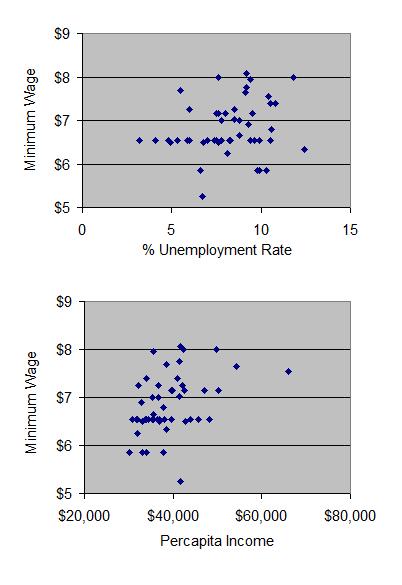- Thread starter
- #101
I am not talking about increasing the nominal minimum wage, but the real minimum wage. Tell me what would happen if Congress decided to raise the minimum wage to $100 an hour (not just nominally, but real wages as well). Assume the dollar's purchasing power is constant, so the real minimum wage rate will be higher. This can be done gradually over time or quickly. That is not the question. The question is what will this change bring. I see this question as central to the minimum wage debate, and your refusal to answer it, in my eyes, reveals the weakness of your position.I have no intention to discuss sudden and/or radical changes of the minimum rates amount. If such sudden or radical modifications were ever induced by the U.S. dollars modified purchasing power, the minimum wages rate would be among the least economic concerns of our nation.
Respectfully, Supposn
Shackled Nation, for the same reason that I choose not discuss how atomic destruction of all USAs major cities would affect the stock market, I similarly have stated my refusal to discuss radical increase of the federal minimum wages rates probable affect upon our economy. My declaration of perceiving no net economic benefit due to such an act should be sufficient.
The answer to what is or is not a radical modification is subjective. We do not want a modification that brings the updated minimum rate within too close a proximity of the median rate and/or would radically modify the median rate. We want to grant consideration to the lowest income earners while leaving sufficient differentiation between the minimum and the median rates so as to encourage a competitive labor market among all types of tasks.
What precisely do you mean by the nominal minimum rates? I suppose by real minimum rates youre discussing amounts adjusted to reflecting equal U.S. dollars of equal purchasing power (in order to facilitate comparisons)?
Respectfully, Supposn



